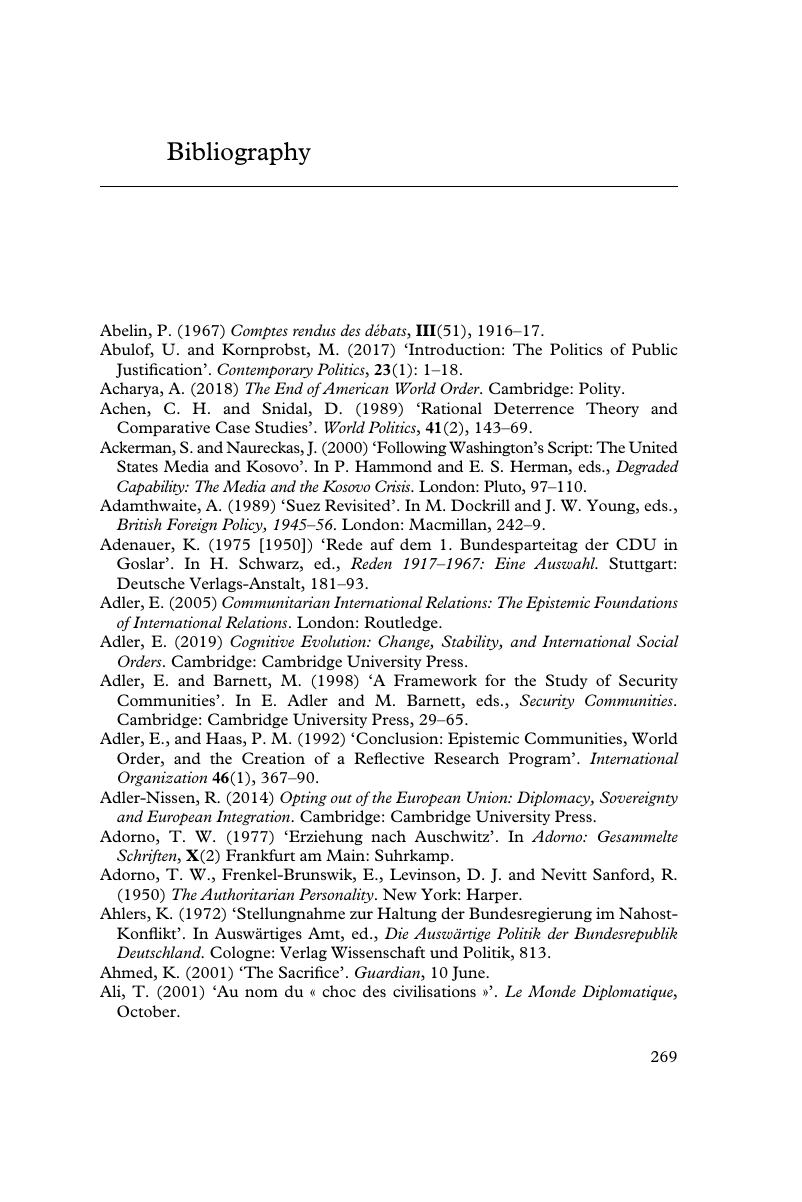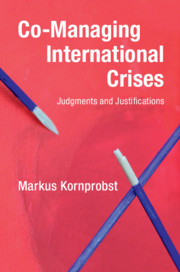Book contents
Bibliography
Published online by Cambridge University Press: 08 April 2019
Summary

- Type
- Chapter
- Information
- Co-Managing International CrisesJudgments and Justifications, pp. 269 - 324Publisher: Cambridge University PressPrint publication year: 2019

